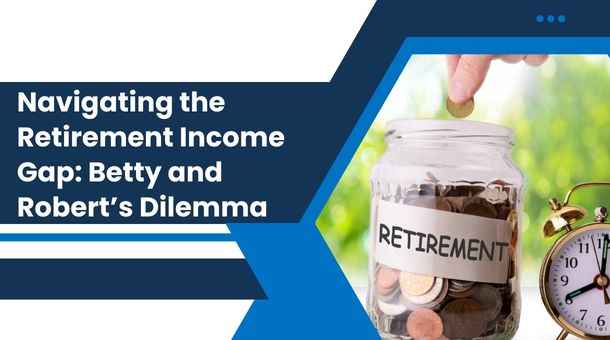Betty and Robert, a couple who had weathered life’s storms together, suddenly found themselves in uncharted territory.
Betty, a dedicated employee of a large corporation for 40 years, was recently informed that her position was eliminated.
The shock of losing her job at 63 left her feeling vulnerable. Meanwhile, at 70, Robert was already retired and collecting Social Security. Their combined income was insufficient to cover their monthly expenses of $5,700. Sitting at their kitchen table, they wondered how to bridge the gap.
Betty’s Situation
- Severance Pay and Insurance: Betty would receive severance pay for six months, providing some financial relief during the transition. However, it wouldn’t be enough to sustain them long-term.
- Health Insurance: Her insurance coverage would continue for the same duration.
- Social Security Dilemma: Betty could start drawing her Social Security now, but it would only amount to $2,200 monthly—far from enough to cover their expenses.
- IRAs: Their IRAs held a total of $70,000, but this wouldn’t supplement their needed income significantly.
Robert’s Retirement Income
- Social Security: Robert received $1,780 monthly from Social Security.
- Small Pension: His pension from a previous job added an extra $160 monthly.
The Income Gap and Student Loans
Betty and Robert faced an income gap of approximately $2,760 monthly (their expenses minus their combined income). Additionally, Betty still had student loans amounting to $85,000 hanging over her head.
The Strain on Their Relationship
The financial stress weighed heavily on their relationship. Sleepless nights turned into heated discussions about bills and debts. They felt trapped—unsure of where to turn for help.
Seeking Solutions
- Financial Counseling: Betty researched financial counselling services in their area. They needed professional advice on managing their limited resources effectively.
- Budgeting and Prioritization: They created a detailed budget, prioritizing essential expenses like housing, utilities, and groceries.
- Exploring Part-Time Work: Betty considered part-time or freelance opportunities to supplement their income.
- Student Loan Repayment Options: They contacted the loan servicer to explore repayment plans based on Betty’s current situation.
- Community Resources: They contacted local nonprofits that assisted with utilities or food.
Robert’s Advantage
Robert, because he was over full retirement age (FRA), could earn as much as he wanted without affecting his Social Security benefits.
Betty, however, due to her age, could earn up to $21,400 in 2022 while collecting Social Security before reaching FRA. This amount increases slightly each year until she reaches her full retirement age.


help